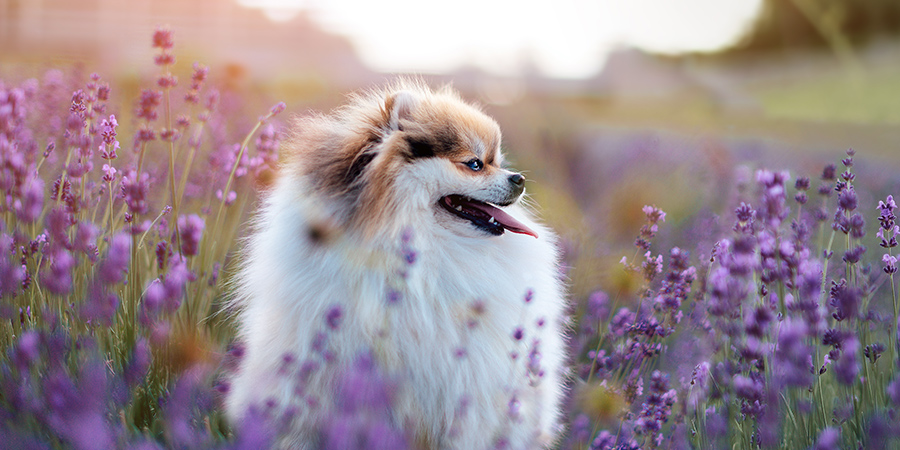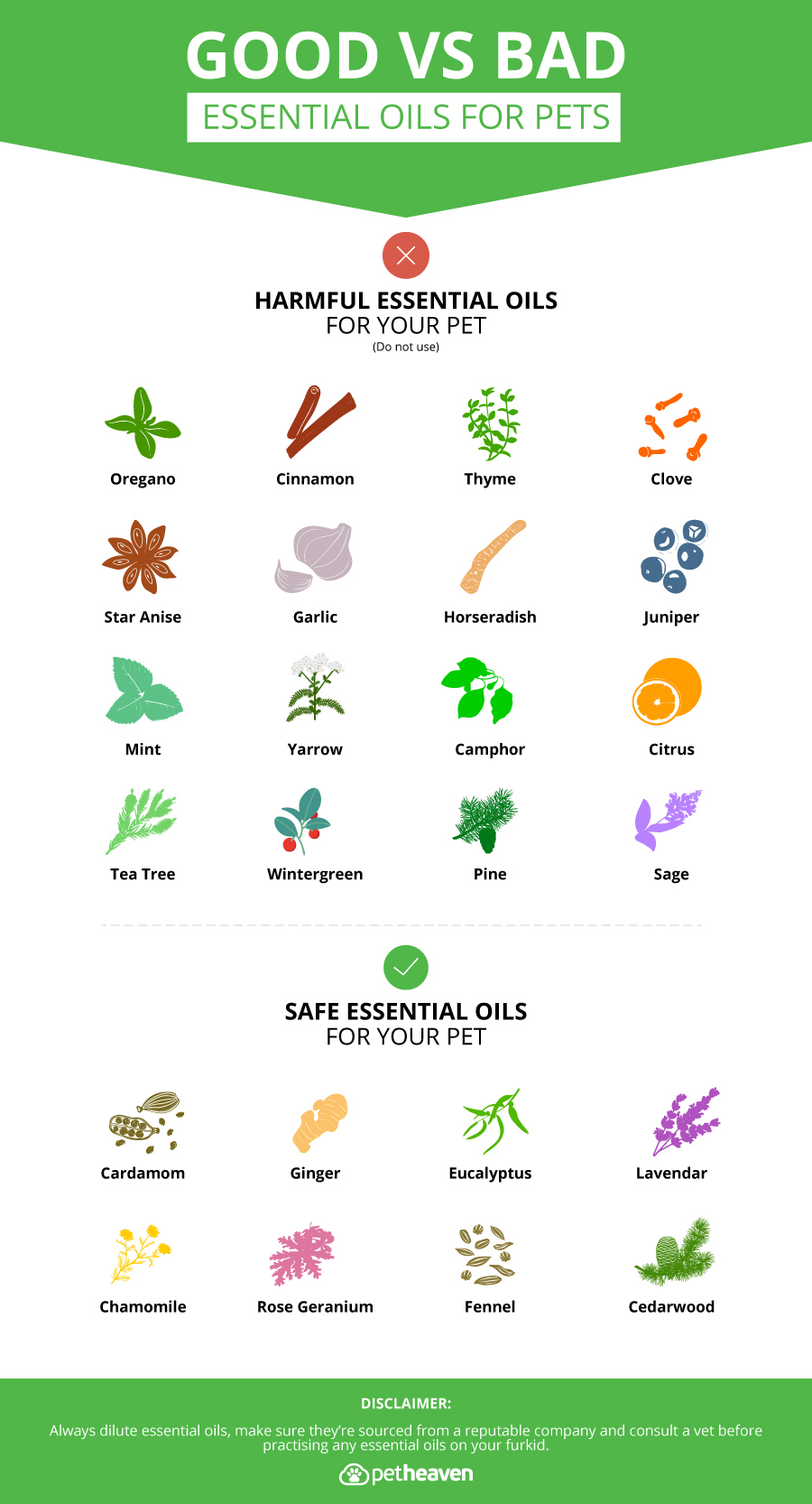Tails
Making pet parenting easy

Good Vs Bad Essential Oils for Pets
This entry was posted on 2018-03-05.
Many know the beneficial use of aromatherapy and essential oils to help with anxiety, inflammation and other general uses, however, many people are unaware that there are several essentials oils that can be dangerous towards your pet’s health. The use of essential oils can be done via diffuser, skin contact or ingestion, however if you are using any of these methods, please consult our list of what may be dangerous for your furkid.
Essential oils can be powerful, and because our pet’s bodies process differently from ours, things that may not seem harmful to us, can be very harmful to them. So, ignore the hype online, if your animal seems to be suffering in anyway, take them to the vet for consultation before going to the herbal cupboard and endangering their life even further.
The following can be extremely harmful to your furkid, and owners should take caution before using it on their pets:
- “Hot oils” are especially dangerous to animals, these include: oregano, thyme, tea tree, cinnamon, clove, camphor, pine and wintergreen. This also includes any type of citrus oil.
- Other essential oils you should not expose your pet to are star anise, garlic, horseradish, juniper, yarrow, peppermint, spearmint, sage and birch. These can lead to allergies, skin sensitivity, and interference with your pet's natural body processes.
However, rest assured not every essential oil out there is harmful! There are a few listed below which are beneficial to animals for various reasons, however always seek vet consultation before using any essential oil.
If you do use any essential oils, always dilute the oils with water so it doesn’t overpower your animal’s sense of smell, avoid sensitive areas, such as the ears, eyes, nose and genitals, use caution and consider the size of your furkid, as every animal has a different metabolism. Do not enforce the oil on your pets if they react negatively to the smell.
Overuse of essential oils on animals can lead to kidney and liver toxicity, so avoid using an oil for more than two weeks. When using diffusers or candles, always watch your pet’s reaction and notice any behaviour changes. Always dilute oils even if they are just being inhaled. Lastly, cats, birds and rabbits are known to be particularly at risk with essential oils, so always consult a vet before use.
Therapeutic oils that are friendlier for your furkid are:
- Cedarwood – which helps repel pests and promotes a healthy skin and coat.
- Chamomile – this oil promotes relaxation and supports healthy digestion.
- Lavender – is also good for relaxation and relieves anxiety.
- Ginger – relieves pain from arthritis and supports healthy digestion.
- Cardamom – serves as a diuretic, normalizes the appetite, and rides heartburn and nausea.
- Fennel – balances pituitary, thyroid and pineal glands.
Again – always dilute essential oils, make sure they’re sourced from a reputable company and consult a vet before practising any essential oils on your furkid.
ABOUT THE AUTHOR

Tamsyn Halm
Tamsyn Halm is a proud academic, who is currently focused on her Masters in History. She grew up surrounded by her two favourite things - books and cats. While she loves her dog, Honey, Tamsyn has a special place in her heart for every cat that crosses her path.





